Election results become controversial either in case of the overwhelming success of a presidential candidate or in case of a razor’s edge marginal lead. There are cases when a candidate having prominence by popular vote has not been victorious on one or the other account. Ruling parties do not hesitate to use unfair means during elections. Popular vote represents the will of all voters, but the Electoral College has an inherited element of selection rather than election. Voting turnout hardly exceeds 50% all over the world, and in the U.S. particularly, there are too many preoccupied people. This ultimately leads to the useless, hard feelings after the election. Popularity is different from competence, and many times people have opined that the loser might have been a better option in terms of competency. Many U.S. Presidents have a military background, and a high-ranking military officer may not be necessarily a good political leader too. U.S. history is full of politically motivated assassinations of presidents. Twenty attempts to assassinate the sitting presidents have been made, and four of them resulted in the assassination of the presidents: Abraham Lincoln, James A. Garfield, William McKinley, and John F. Kennedy. This indicates that there have been people who thought that the opponent of the assassinated president might have done better.
1. Gerald Ford
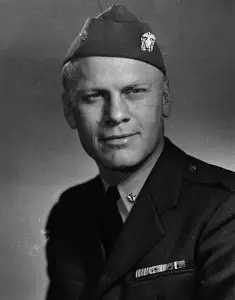
The Watergate Scandal, along with resignation of President Richard Nixon, was followed by the U.S. presidential elections of 1976. In this election, Jimmy Carter, the former governor of Georgia, unseated the incumbent President Gerald Ford in spite of his carrying the majority of the seats. Ford carried 27 of the 50 states; the most ever won by a losing candidate. Carter took 23 states, but he got 297 electoral votes against 240 electoral votes won by Ford. Carter won only marginally by getting 50.08% of the votes against the 48.02% of the votes won by Ford. Next only to Nixon who won in 26 states in 1960, Gerald Ford is the only candidate who won in more than half, 27 out of 50 states, and lost. The 1976 election was the first when the color feature was introduced in television programming. The NBC Nightly Views had the U.S. map displayed on TV, and the state was colored red if Carter won and blue if Ford won in a state. This color coding feature was liked so much that it continues currently.
2. George H. W. Bush
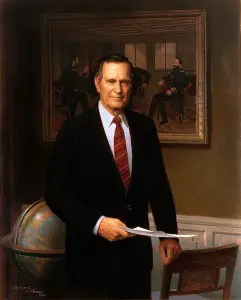
In the United States Presidential election of 1992, the incumbent President George H. W. Bush was unseated by the Democratic Arkansas Governor Bill Clinton mainly on account of the recessionary economy and declining importance of the foreign policy after the dissolution of the Soviet Union. Had George Bush been elected for a second term, he would have easily tackled these issues as a result of his accumulated experience. Clinton got 43% of the popular vote and 370 electoral votes against 37.5 % of the popular vote and 168 electoral votes for Bush. Of all the 538 electoral votes of the Electoral College, 270 were needed to win, which George Bush could not get.
3. Richard Nixon
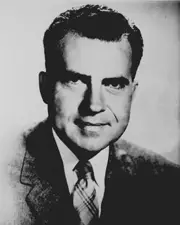
Richard Nixon was the Presidential candidate along with the other potential candidate, John F. Kennedy, during the U.S. Presidential election of 1960. Since the sitting president, Dwight D. Eisenhower, was not eligible for another term, the Republican party nominated Richard Nixon who was Eisenhower’s vice-president. John F. Kennedy, Senator from Massachusetts, was nominated by the Democrats. It was one of the closest elections in U.S. history. Kennedy got 49.7% of the popular vote while Nixon got 49.5% of the popular vote. To be precise, Kennedy won by only 0.16% of the popular vote, but he got 303 Electoral votes against 219 Electoral votes for Nixon. Kennedy won in 22 states against the 26 states carried by Nixon. Kennedy approved the Bay of Pigs invasion in April, 1961, but showed infirmity and backed out. Had it been approved by Nixon, it would have been, most probably, a different story altogether.
4. Horatio Seymour
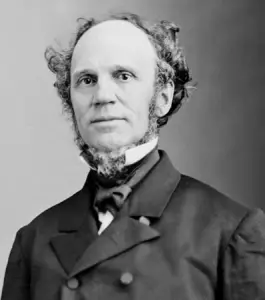
After the assassination of President Abraham Lincoln, Andrew Johnson was the incumbent president in the 1868 presidential election, but he was not nominated by the Democrats due to his unpopularity. Democrats nominated General Ulysses S. Grant on account of his popularity after concluding the Civil War successfully. It was a close contest as Grant got 52.7% of the popular vote against 47.3% of the popular vote for Seymour. Grant, however, won in 28 states while Seymour won in 8 states. Grant was an established, superb, military commander and, as indicated by the percentage of the popular vote, there were many who wanted him to win.
5. Theodore Roosevelt
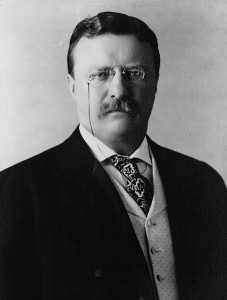
In the United States Presidential election of 1912, Democrat Woodrow Wilson won with a wide margin. He got 435 Electoral votes, 41.8% of the popular vote, and won in 40 states. His closest rival, Theodore Roosevelt, got 88 Electoral votes, 27.4% of the popular vote, and carried only 6 states. Inspite of all this, there are people who think that Roosevelt should have won on account of his unique, meritorious position. He was the last presidential candidate to secure a second position both in the Electoral and Popular vote even while he belonged neither the Republicans nor to the Democrats.
6. Al Gore
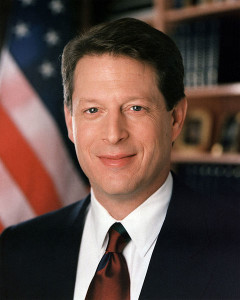
The United States Presidential election of 2000 was quite a vibrant event. One of the main contestants was the Republican candidate George W. Bush, the governor of Texas, and son of the former U.S. President George H. W. Bush. The other presidential candidate was Al Gore, the vice-president of the incumbent President Bill Clinton who had already served for the permissible maximum two terms. Bush won narrowly, but the world might have been a better place to live in had his opponent won the election. Bush won 271 electoral votes against 266 for Al Gore, and 47.9% of the popular vote against 48.4% of Al Gore’s. Bush won in 30 states while Al Gore carried 20 states. This was the fourth election in the history of the U.S. when the winner did not get the relative majority of the popular vote.
7. Viktor Andriyovych Yushchenko
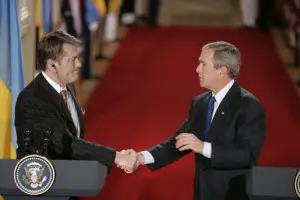
Who should have won was a burning question raised in the highly charged political atmosphere during the 2004 Ukrainian Presidential Election. Yushchenko was the leader of the Ukrainian opposition and the main opponent of the government-supported presidential candidate Viktor Yanukovych. Neither of the two could get more than 50% of the popular vote; therefore, a run-off election was conducted in compliance with the local legislation. Yanukovych won, but the government was blamed for rigging the election. Therefore, the Supreme Court ordered a second run-off, and Yuchenko won in the re-vote by a 52% margin against 44%. He was poisoned with Dioxin to disfigure him, but he recovered slowly.
8. Luis Carlos Galan Sarmiento

Luis Carlos Galan Sarmiento was a Columbian political leader and founder of the New Liberalism Movement. He was a proclaimed enemy of the influential Columbian Drug Alliance particularly the Medellin Cartel headed by Pablo Escobar. He should have won as he was comfortably leading the polls for the coming 1990 Presidential election, but he was shot dead by the opponents in the town of Soacha during a public demonstration. He had also run for the presidency of Columbia in 1982 and lost to Belisario Btancur. His murder investigation remains inconclusive.
9. George Corley Wallace, Jr.

George Corley Wallace, Jr. was born to George Corley Wallace, Sr., and Mozell Smith in Clio, Barbour County in Alabama on August 25, 1919. Persistence is a great virtue, and it requires lot of courage to face failure after failure without surrendering to it. He should have won after his four runs for U.S. President. He is remembered with the title of The Most Influential Loser in 20th century U.S. politics. An assassination attempt in 1979 paralyzed him, and he was constrained to use a wheelchair for the rest of his life.
10. Hubert Humphrey
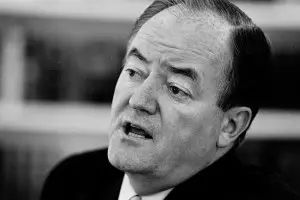
In the 1968 U.S. Presidential election, the Republican nominee, former vice-president Richard Nixon, won over the Democratic Nominee, vice-president Hubert Humphery. Nixon won 301 Electoral votes, 43.4% of the popular vote, and carried 32 states. Humphery, on the other hand, won 191 Electoral votes, 42.7% of the popular vote, and won in 13 states. Humphrey’s popular vote being so close to the winning candidate is an unignorable factor, particularly in the backdrop of the assassination of Martin Luther King, Jr., the famous Civil Rights leader and the demonstrations against the Vietnam War.
Conclusion:
Circumstances before and after elections are subject to change; therefore, the performance of an elected president may or may not be up to the expectations of the voters. Sometimes even a single event like that of 9/11 may not only change the history of a nation but also may impact the whole world. Being in office definitely empowers the sitting president but does not exclude the possibility of being considered as incompetent. It is, therefore, very important that the people close to the president serve as true indicators and advisers. They should not be merely a misleading group of admirers as sometimes is the case.










Leave a Reply